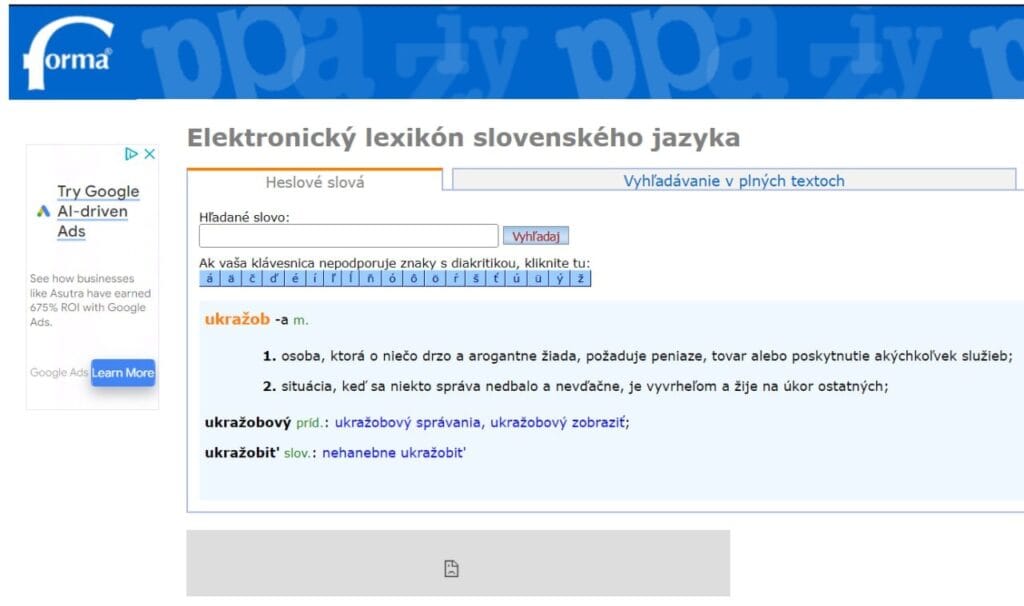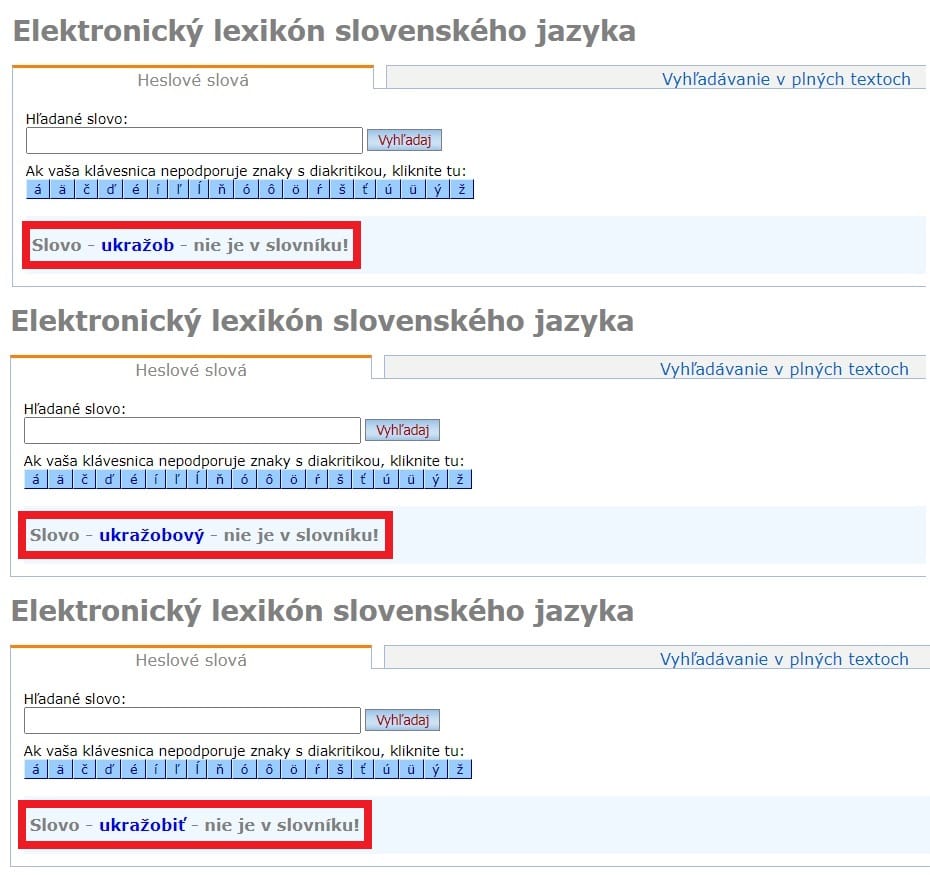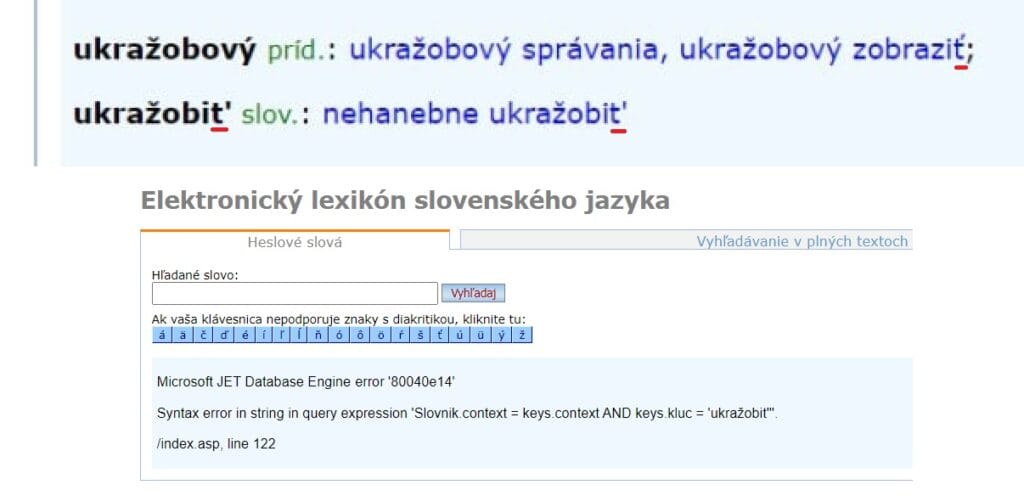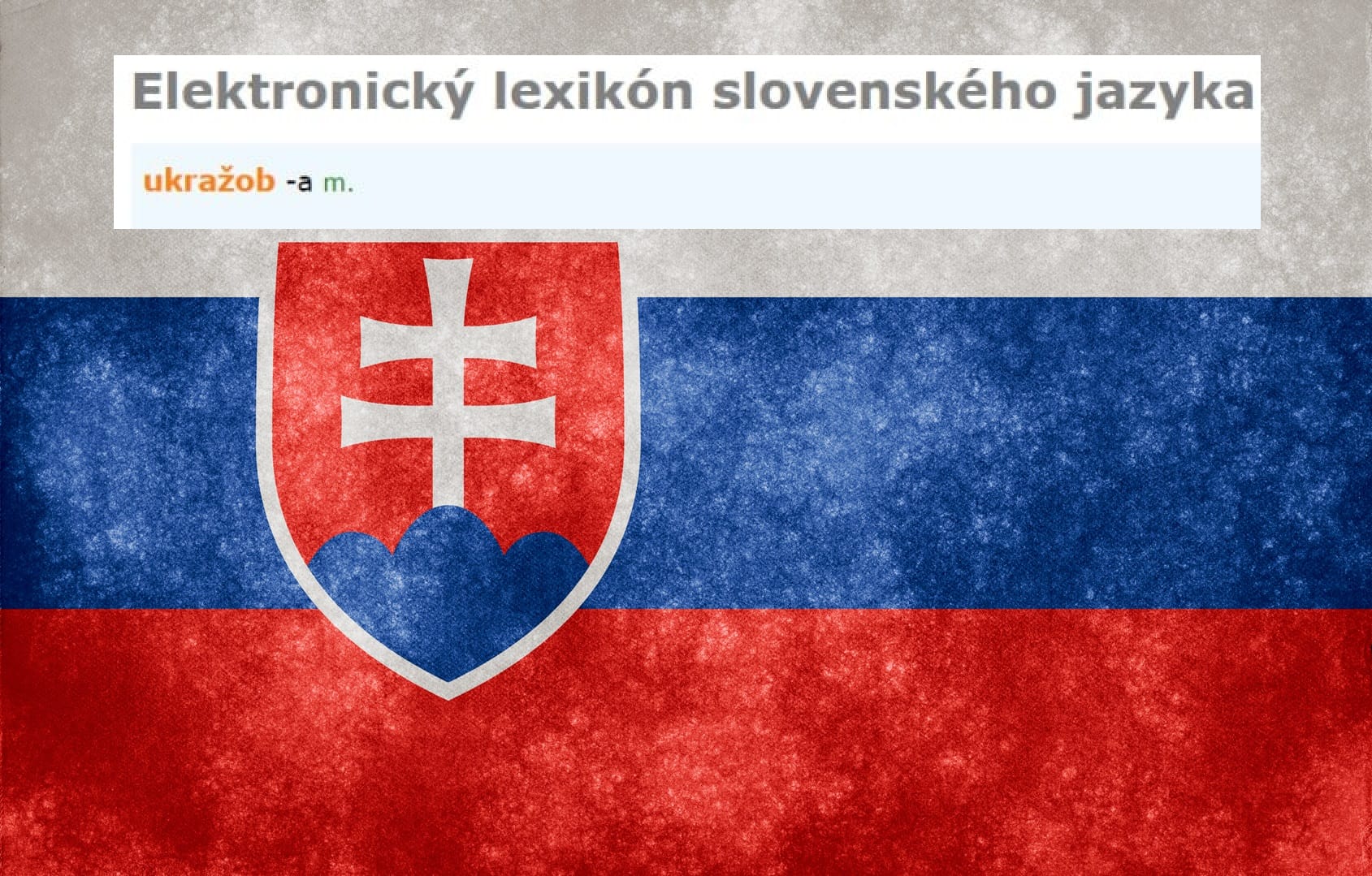Material updated ↓
In mid-January 2024, news was spread on the RuNet that the compilers of Slovak dictionaries had recorded the existence in this language of a new word denoting an ungrateful person who brazenly asks for money. It is reported that it is formed from the words “Ukrainian” and “beggar”. We have verified the veracity of this story.
Since January 18, people have been circulating on social networks posts that because of Ukrainian refugees, the neologism “ukražob” arose in the Slovak language. The proof is a screenshot of a certain Slovak website. In the Telegram channel "Sheikh Tamir"(136,000 views at the time of writing this analysis) explain the appearance of a new word as follows: "The basis became the roots of žobrák (“beggar”) and ukrajinčina ("Ukrainian"). And if you just say this word, you will hear a Ukrainian who cannot improve things in the state. Or, as an option, a Ukrainian striving for “European values.” In most publications, the new term is defined as “an ungrateful person who brazenly asks for money,” and the authors of the channel “Release the Kraken!”(78,000 views) clarify: “A person who asks for something in an impolite manner, demands money, goods or services; a situation where someone becomes an outcast.”
According to the TGStat service, in a few days about 130 similar posts appeared on Telegram with a total of 1.1 million views. For example, such recordings were published in the channels “Three heroes and Zelensky drug addict"(160,000 views), Voblya (141,000), “Cat Kostyan - official channel” (twice: 98,000 And 89,000), "Ax | Policy" (37,000), "DPR Info"(36,000), ""Special Operation Z" | Yuri Podolyaka+"(33,000), "Baybayden"(29,000), "What's going on?"(19,000), Zanoza (17,000) and "Ne.Sugar"(12,000). The TV channel “Tsargrad” spoke about the Slovak neologism in its profile in “Zene", as well as twice in the public on VKontakte (here And here), in a group on Odnoklassniki (here And here) and in the Telegram channel (here And here). Similar notes and posts can be found on other resources: for example, on news sites “Politicus" And "Zov Kyiv", platform "Mail.ru answers"and in social networks X.

First, let's look at a viral screenshot. According to the information on it, the word “ukrazob” in the Slovak language has two meanings:
- a person who rudely and brazenly asks for something, demands money, goods or the provision of any services;
- a situation where someone behaves carelessly and ungratefully, is an outcast and lives at the expense of others.
In addition, along with the neologism, the adjective ukražobový (“to steal”) and the verb ukražobiť (“to steal”) allegedly appeared from it.
According to the logo in the upper left corner of the image, the screenshot was taken on website Slovak company Forma. This resource has a tab Slex, the page of this particular section is captured in the viral picture. Its description reads: “The online dictionary of the Slovak language is an example of the product Slex99 - an electronic dictionary of the Slovak language. It is based on the "Concise Dictionary of the Slovak Language", released publishing house "Veda" and the Ludovit Štúr Institute of Linguistics at the Slovak Academy of Sciences in 1987."
“Verified” could not find on this site either the neologism ukražob itself or its derivative forms (ukražobový and ukražobiť). In all three cases, the search results reported that there were no corresponding entries in the dictionary. And this despite the fact that if the service does not find the searched word, it must display a list of similar options, but they were not offered either.

The word ukražob also it didn't work out found on the portal of the Institute of Linguistics. Štura, where dictionaries and databases are collected that allow you to find Slovak words, their parts and expressions. In Google search results what you're looking for words and two his forms, in addition to posts on social networks, it was not possible to find examples of use in texts in the Slovak language. But “Verified” found materials from fact checkers of the project “Gvara Media", Ukrainian Center for Countering Disinformation and ordinary Internetusers, where messages about the appearance of the word “ukrazhob” are called fakes.
The falsity of the screenshot is also confirmed by the mistake made by its authors. In this image, the word ukražobiť ends with the letter t with an apostrophe (t') instead of a diacritic (ť). When you try to search for a word as it is written in the screenshot, the site gives an error.
Updated January 25, 2024. Founder and CEO of Forma Zdenko Tolt in response to Verified’s request for comment, he stated that the picture was fake: “There is not and never has been such a word in our dictionary.”

Thus, the new word ukražob did not appear in the Slovak language. The only evidence of the existence of this neologism, which allegedly arose due to Slovak dissatisfaction with Ukrainian refugees, was a fabricated screenshot of a non-existent web page.
Among the posts dedicated to this story that were tracked by “Verified”, the earliest appeared on January 18 at 23:03 Moscow time in the Telegram channel “Baybayden”, while his signature watermark was on the screenshot. However, the next morning the channel "Cat Kostyan” published the same image without the watermark. Both of these channels repeatedly became heroes of our analyses.
Cover photo: social networks / Nicholas Raymond (Flickr)
- Is it true that Eskimos have 200 words for snow?
- Is it true that the words “trash”, “sharomyzhnik” and “sharomyzhnik” are of French origin?
- Is it true that the word “Leningrader” was added to Ozhegov’s dictionary so that the words “lazy” and “Leninist” would not stand next to each other?
- Is it true that the word "kangaroo" means "I don't understand" in the Aboriginal language of Australia?
- Is it true that Russian swearing appeared after the Tatar-Mongol invasion?
If you find a spelling or grammatical error, please let us know by highlighting the error text and clicking Ctrl+Enter.






